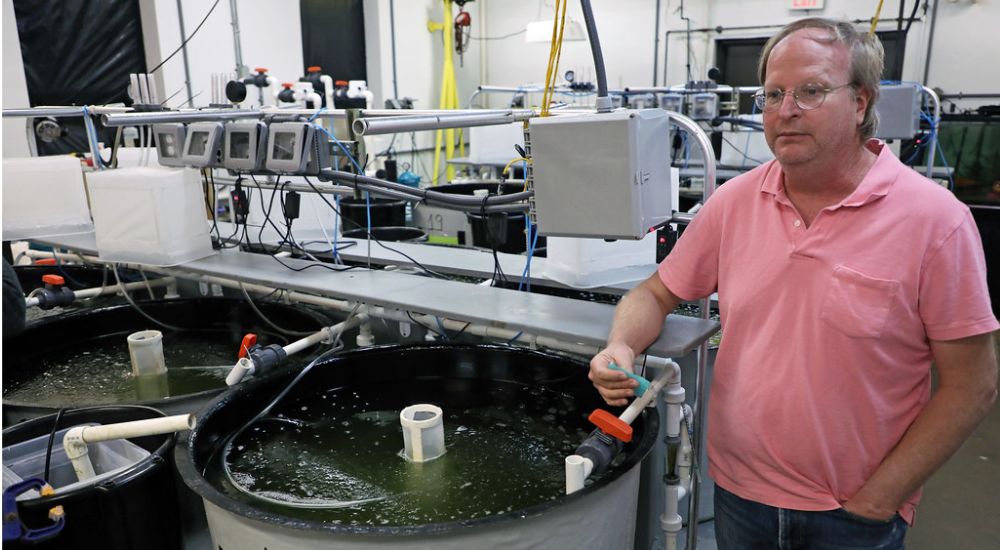An Aquacultural Manager manages and coordinates the activities of workers involved in the production of fish hatcheries for companies, cooperatives, or other owners through subordinate supervisory personnel.
What Does an Aquacultural Manager Do?
(i) Manage and teach support staff for fish hatcheries and aquaculture.
(ii) Account for and disburse funds.
(iii) Utilize and maintain harvesting and cultivation machinery.
(iv) Grow fish and shellfish for food or to be released into fresh or salt water.
(v) Conduct and oversee stock examinations to detect illnesses or parasites.
(vi) Create and take part in initiatives to increase fish growth and hatchery disease prevention, as well as fish hatching and growth rates.
(vii) Plan the selection and upkeep of the brood stock.
(viii) Direct and oversee the transportation of mature fish into ponds, streams, lakes, or industrial tanks.
(ix) Maintaining ideal conditions for aquatic life requires monitoring the environment.
(x) Establish, administrate, and carry out policies for standard operating procedures, facility maintenance, and operations administration.
(xi) Determine how to allocate resources and how to handle unforeseen issues like insect infestation, drought, and fire.
(xii) Consult with biologists, fish pathologists, and other members of the fishing industry to learn more about the behaviours, conditions, and diet of fish.
(xiii) Choose and supervise the preparation of areas for species growth. Identify the environmental requirements of a specific species.
(xiv) Examine the workings of a sea farm while underwater.
(xv) Create the reports required by local, state, and federal laws.
(xvi) Gather and keep track of production, growth, and environmental data.
How to Become an Aquacultural Manager?
Step 1:
It is advised that students who want to pursue aquacultural management as a career, choose the Science stream with Physics, Chemistry, and Biology as their primary studies in high school.
The core subjects for students aspiring to become engineers in this field are physics, chemistry, and math.
Step 2:
B.Sc. in fisheries is a three-year programme. The best candidates for this course are those who have a strong interest in aquatic life and desire to advance their careers in that area.
Aquacultural engineering is one of the areas of focus in the four-year B.Tech. in Agricultural and Food Engineering course.
Step 3:
After earning a suitable undergraduate degree, students can enrol in the two-year M.Sc. in Fisheries programme.
What are the Skills Required to Become an Aquacultural Manager?
(i) Speaking: To convey information effectively, you’ll have to become a good speaker.
(ii) Critical Thinking: Using logic and reasoning to evaluate the benefits and drawbacks of certain conclusions, solutions, or methods for solving issues.
(iii) Reading Comprehension: The ability to understand written words and paragraphs in papers linked to the workplace.
(iv) Active Listening: Paying close attention to what others are saying, taking the time to grasp their arguments, asking intelligent questions when necessary, and refraining from inappropriate interruptions.
(v) Monitoring: Assessing your own, other people’s, or your organization’s performance in order to make improvements or take corrective action.
(vi) Solving Complicated Problems: This process involves identifying complex issues, assessing relevant information, and developing and analyzing potential solutions.
(vii) Writing: Effective written communication in accordance with the audience’s needs.
(viii) Systems analysis: The process of determining how a system should operate and how modifications to its operations, surroundings, and conditions may impact results.
(ix) Management of Personnel Resources: Finding the best candidates for the job while motivating, guiding, and growing employees.
(x) Operation Monitoring: Making sure a machine is operating properly by keeping an eye on gauges, dials, or other indicators.
(xi) Negotiation: Bringing people together to try to solve disagreements.
Knowledge, Experience and Education Required for Aquacultural Manager
1) Biology – Understanding of how plants and animals function as well as their tissues, cells, and relationships with one another and the environment.
2) Mathematics: Mathematical understanding, including statistics, calculus, algebra, geometry, and related applications.
3) Chemistry— Understanding of the chemical components, structure, and characteristics of substances as well as the chemical processes and transformations they go through.
4) Economics and Accounting — Understanding of financial markets, banks, and the analysis and reporting of financial data, as well as economic and accounting concepts and practises.
5) Food Production — Skill of methods and tools for sowing, cultivating, and gathering food (both plant and animal products) for consumption, including processing and storage procedures.
6) Production and processing — Understanding of raw materials, manufacturing procedures, costing, and other methods for maximising the efficient production and distribution of commodities.
7) Administration and Management — Understanding of business and management principles related to strategic planning, resource allocation, human resource modelling, leadership style, production techniques, and people and resource coordination.
8) Engineering and Technology — Understanding of engineering science and technology’s real-world applications.
9) Sales and Marketing — Understanding of the rules and techniques for displaying, advertising, and selling goods and services. Product demonstration, sales techniques, and sales control systems are all included in this.
10) Design — The ability to produce precise technical plans, blueprints, drawings, and models requires knowledge of design procedures, tools, and principles.
Most Frequently Asked Questions
Ans: In India, the average pay for an Aquacultural Manager with between one and fourteen years of experience is 7.7 lakh rupees. The salary range for an Aquacultural Manager in India is between 5.5 to 10.0 lakhs.
Ans: Aquaculture is a method for growing aquatic species (freshwater and marine) for the market. Fish, crabs, and lobster are some examples.
